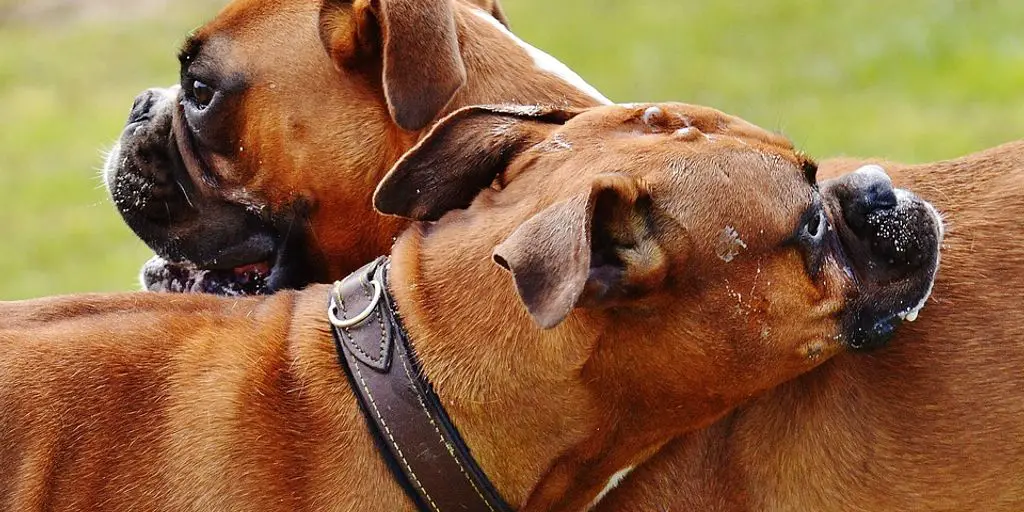Giardia is a common parasitic infection that affects the intestines of dogs, causing symptoms such as diarrhea, vomiting, and weight loss. This article will provide an in-depth look at giardia in dogs, covering everything from how it is contracted to the signs and symptoms to watch for. We will also explore various treatment options and preventative measures to keep your furry friend healthy and happy.
Key Takeaways
- Giardia is a parasitic infection that affects the intestines of dogs, often leading to symptoms like diarrhea and vomiting.
- Dogs can contract giardia by ingesting contaminated water or substances soiled with feces.
- Early diagnosis and treatment are crucial for a speedy recovery and to prevent the spread of the parasite.
- Preventative measures such as providing clean drinking water and maintaining good hygiene can help protect your dog from giardia.
- Both puppies and adult dogs can be affected by giardia, but puppies are more susceptible to severe symptoms.
What is Giardia and How Do Dogs Get It?
Giardia is a pesky parasite that can wreak havoc on your dog’s intestines, leading to some pretty nasty diarrhea. This parasite has two forms: the fragile trophozoite, which lives in the gut, and the hardy cyst, which is shed in feces and can survive for months in the environment, especially in water and damp areas.
Understanding the Parasite
Giardia is a microscopic organism that loves to hang out in the intestines of infected animals. It has two forms: the trophozoite, which is the active, feeding stage, and the cyst, which is the dormant, infectious stage. The cysts are particularly tough and can survive for a long time outside the host, especially in moist environments.
Common Ways Dogs Contract Giardia
Dogs usually get Giardia by ingesting the cysts. This can happen in several ways:
- Drinking contaminated water, like from puddles or streams.
- Eating something that’s been contaminated with feces, like grass or soil.
- Chewing on objects that have been in contact with infected feces.
Since dogs love to chew on things and explore their environment with their mouths, there are plenty of opportunities for them to pick up this parasite. Once ingested, the cysts transform into trophozoites in the intestines, where they attach to the intestinal wall and start causing trouble.
Signs and Symptoms of Giardia in Dogs
When it comes to Giardia, dogs can be quite sneaky. Many dogs don’t show any symptoms at all, and the infection is only discovered through stool tests. But when symptoms do appear, they are usually related to the digestive system.
Recognizing Early Symptoms
The most common sign is diarrhea, which can be sudden and severe. You might notice that your dog’s stool is soft, watery, and sometimes contains mucus. Other early symptoms include abdominal discomfort and excessive, foul-smelling gas. If your dog has a poor coat condition, it could also be a sign of Giardia.
When to See a Vet
If your dog shows any of these symptoms, it’s time to see a vet. Persistent diarrhea, weight loss, and dehydration are serious signs that shouldn’t be ignored. Your vet can perform tests to confirm if Giardia is the culprit and recommend the best course of treatment.
It’s crucial to act quickly if you suspect Giardia. Early diagnosis and treatment can prevent more severe health issues down the line.
Diagnosing Giardia in Dogs
Diagnosing Giardia in dogs can be a bit tricky. This sneaky parasite doesn’t always show up in every stool sample, so sometimes multiple tests are needed to get a clear picture. Veterinarians have a few different methods to detect Giardia, and each has its own pros and cons.
Treatment Options for Giardia
Once your dog is diagnosed with Giardia, it’s time to tackle the issue head-on. Here’s what you need to know about the treatment options available.
Medications and Their Effectiveness
The most common medications prescribed for treating Giardia in dogs are fenbendazole and metronidazole. Fenbendazole works by disrupting the parasite’s life cycle, while metronidazole targets the parasite directly, killing both cysts and trophozoites. In some cases, a combination of both medications might be used for a more effective treatment. It’s crucial to follow your vet’s instructions and complete the full course of medication to ensure the parasite is fully eradicated.
Natural Remedies and Home Care
While medications are the primary treatment, some pet owners explore natural remedies and home care to support their dog’s recovery. These can include:
- Probiotics: To help restore gut health.
- Hydration: Ensuring your dog drinks plenty of water to prevent dehydration.
- Nutritional Support: Providing a balanced diet to boost the immune system.
However, always consult your vet before trying any natural remedies to ensure they are safe and effective for your dog.
Remember, it’s vital to follow the treatment plan prescribed by your veterinarian and complete the full course of medication. Do not attempt to give your pet any over-the-counter medication that has not been prescribed by your veterinarian.
Preventing Giardia Infections
Preventing Giardia infections in dogs is all about being proactive. Clean water and good hygiene are your best friends here. Let’s dive into some practical tips to keep your furry friend safe from this pesky parasite.
How Giardia Affects Puppies vs. Adult Dogs
Unique Challenges in Puppies
Puppies are particularly vulnerable to giardia because their immune systems are still developing. This makes them more susceptible to infections, including giardia. Puppies with giardia often experience severe, watery diarrhea, which can be life-threatening if not treated promptly. Additionally, puppies in kennels, shelters, or other crowded places are at a higher risk of exposure to giardia cysts.
Managing Infections in Older Dogs
Adult dogs generally have stronger immune systems, which helps them fight off infections more effectively. However, if an adult dog has a weakened immune system due to illness or medication, they are also at risk. In most cases, giardia in adult dogs may be a transient, insignificant finding, especially if they do not show symptoms. But it’s crucial to monitor their health and consult a vet if you notice any signs of giardia.
It’s essential to provide your dog with clean, safe drinking water and maintain good hygiene practices to prevent giardia infections.
| Age Group | Susceptibility | Common Symptoms |
|---|---|---|
| Puppies | High | Severe diarrhea |
| Adult Dogs | Moderate | Often asymptomatic or mild symptoms |
The Lifecycle of Giardia
Understanding the lifecycle of Giardia is key to keeping your dog safe. This pesky parasite has two main forms: the trophozoite and the cyst. The trophozoite is the active form that lives in your dog’s intestines, feeding and multiplying. Eventually, some of these trophozoites transform into cysts, which are then passed out in the dog’s feces. These cysts are incredibly hardy and can survive in the environment for weeks, waiting to be ingested by another host to start the cycle all over again.
Potential Complications from Untreated Giardia
If left untreated, Giardia can lead to some serious health issues for your dog. Dehydration is one of the primary short-term risks, especially if your dog is experiencing persistent diarrhea. This can happen gradually and may not be immediately noticeable, but it can become life-threatening if not addressed promptly.
Long-term Health Effects
Over time, untreated Giardia can interfere with your dog’s ability to absorb nutrients, leading to malnutrition. This is particularly concerning for puppies and older dogs, who may already have compromised immune systems. Malnutrition can result in weight loss, lethargy, and a general decline in overall health.
Secondary Infections
Another major concern is the risk of secondary infections. The constant diarrhea and irritation can create an environment where bacteria and other pathogens thrive. This can lead to additional gastrointestinal issues, making your dog even more uncomfortable and harder to treat.
It’s crucial to get a proper diagnosis and treatment plan from your vet to avoid these complications. Early intervention can make a significant difference in your dog’s recovery and overall well-being.
Living with a Dog Diagnosed with Giardia
Living with a dog diagnosed with Giardia can be challenging, but with the right approach, you can manage it effectively. Here are some tips to help you navigate this situation.
Frequently Asked Questions About Giardia in Dogs

Common Concerns
Is Giardia contagious to other pets or humans?
Yes, Giardia can spread to other animals and humans. This zoonotic potential means good hygiene practices are important, such as washing hands after handling pets and their waste and avoiding direct contact with contaminated water sources.
Expert Answers
Can Giardia cause long-term health issues in dogs?
Giardiasis can be a significant cause of illness, especially diarrhea, in animals and people. However, most dogs infected with Giardia do not have diarrhea, vomiting, or any other signs of illness.
How do dogs get giardiasis?
Dogs become infected when they swallow Giardia that may be present in water or other substances that have been soiled with feces.
How will Giardia affect my dog?
Giardia, while not always serious, can cause discomfort for your dog. By understanding the parasite, its lifecycle, and the preventive measures you can take, you can create a healthy environment for your pup. Remember, early diagnosis and treatment are absolutely necessary for a speedy recovery.
Conclusion
Dealing with giardia in dogs can be a bit of a hassle, but with the right knowledge and preventative measures, you can keep your furry friend healthy and happy. Remember, early detection and treatment are key to managing this pesky parasite. Always keep an eye out for symptoms and consult your vet if you have any concerns. By staying informed and proactive, you’ll ensure your pup stays parasite-free and full of life. Happy pet parenting!
Frequently Asked Questions
What is Giardia in dogs?
Giardia is a single-celled parasite that lives in a dog’s intestine. It often causes diarrhea and can lead to other gastrointestinal symptoms.
How do dogs get Giardia?
Dogs typically contract Giardia by ingesting the parasite from contaminated water, food, or feces.
What are the symptoms of Giardia in dogs?
Common symptoms include diarrhea, vomiting, weight loss, and poor condition. Some dogs may show no symptoms at all.
How is Giardia diagnosed in dogs?
Veterinarians diagnose Giardia through fecal tests, including direct smears, flotation, and ELISA tests to detect the presence of the parasite.
What treatments are available for Giardia in dogs?
Treatment usually involves medications like metronidazole or fenbendazole, along with supportive care such as hydration and a balanced diet.
Can Giardia in dogs be prevented?
Yes, prevention includes providing clean drinking water, practicing good hygiene, and promptly cleaning up after your dog to avoid contamination.
Is Giardia contagious to humans?
While it is rare, Giardia can be transmitted from dogs to humans, causing gastrointestinal symptoms. Good hygiene practices can reduce this risk.
How long does it take for a dog to recover from Giardia?
With proper treatment, most dogs recover within a few weeks. However, some cases may require prolonged treatment and follow-up testing.


